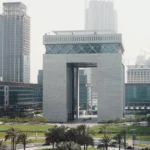Question 1: How can I save for my grandson’s future education abroad?
Answer: Saving early for your child’s education is essential. Financial experts suggest starting with a Systematic Investment Plan (SIP) in mutual funds when the child is young. SIPs help you build a solid financial base while balancing inflation and rising education costs.
Most mutual fund education plans have a five-year lock-in period. These plans often allow flexibility for adding lump sum amounts, like birthday gifts or other windfalls, which can significantly grow your savings. Several well-known mutual funds offer children-specific schemes that allow gradual annual increments in investments. This flexibility ensures you can adjust your contributions based on your financial situation.
By investing consistently and adding extra funds when available, you’ll be better prepared to cover your grandson’s educational expenses by the time he turns 21.
Question 2: Are Indian stock exchanges providing enough information for investors?
Answer: According to SEBI (Securities and Exchange Board of India) guidelines, publicly listed companies must disclose all price-sensitive information in real-time. This includes changes in key managerial personnel, resignation of statutory or secretarial auditors, fraud cases, or funding plans. Companies are also required to disclose restructuring or loan settlement plans and insolvency petitions admitted by the National Company Law Tribunal (NCLT).
However, regular retirements or the end of management tenures do not require disclosure as these are predictable events. SEBI continues to strengthen its regulations to ensure investors receive adequate and transparent information.
In short, SEBI’s comprehensive disclosure norms effectively protect shareholder interests, making the Indian stock market a secure platform for investment.
Question 3: Will India’s rising trade deficit with China harm local manufacturers?
Answer: India’s trade deficit with China has grown to $40.8 billion as of August 31, 2024, primarily due to the increased import of electronics, machinery, and chemicals. Imports rose by 11% during the April-August period, driven by essential items like telecom equipment and components.
To support domestic industries, the Indian government reduced the basic customs duty on mobile components from 20% to 15%. This move has led to a threefold increase in domestic mobile production and significantly boosted exports over the last six years.
While higher imports may challenge local manufacturers, the Finance Minister emphasizes striking a balance between encouraging essential imports for industrial growth and safeguarding domestic industries. International bodies like the World Bank and IMF recommend lowering tariffs to enhance India’s economic and industrial growth.





